Horror – One Size Fits All
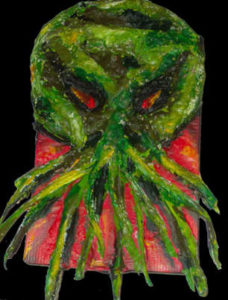 My “coming to Jesus” moment as a teen, ironically, started with horror. I say ironically, because I’ve mostly avoided horror through most of my life. Yet it was a bit of horror from the Bible which led me down the path of salvation.
My “coming to Jesus” moment as a teen, ironically, started with horror. I say ironically, because I’ve mostly avoided horror through most of my life. Yet it was a bit of horror from the Bible which led me down the path of salvation.
I was in 9th grade, sitting in English class waiting for the bell to ring and class to start. A group of peers had gathered around a desk a couple of chairs behind me. The kid at the desk was attempting to witness to them, I believe. I don’t recall all he said and he had no idea I was listening in. He said something close to, “Did you know in the Bible says giant scorpions will fly around torturing people for five months in the last days?”
This statement shocked me. One, because having grown up in southern and central Texas, I’d been stung by scorpions more than once growing up. That hurt bad enough. I couldn’t imagine the horror of giant ones flying around stinging people. Sounded like something out of a science fiction monster flick.
Two, because having grown up as a pastor’s kid for the first 9 years of my life, all I could remember of Bible stories seemed quite benign by comparison. How does one mesh “Jesus loves the little children, all the children of the world” with God sending monsters to inflict pain on people? Inflicting such horrors seemed opposite of the loving father in the story of the Prodigal Son. Was this really in the Bible?
So I took mental note of the chapter/verse reference he mentioned. When I got home that day, I dusted off an old Bible my grandmother had given me and found the reference. The following is what I read.
And there came out of the smoke locusts upon the earth: and unto them was given power, as the scorpions of the earth have power. And it was commanded them that they should not hurt the grass of the earth, neither any green thing, neither any tree; but only those men which have not the seal of God in their foreheads. And to them it was given that they should not kill them, but that they should be tormented five months: and their torment was as the torment of a scorpion, when he striketh a man. And in those days shall men seek death, and shall not find it; and shall desire to die, and death shall flee from them. And the shapes of the locusts were like unto horses prepared unto battle; and on their heads were as it were crowns like gold, and their faces were as the faces of men. And they had hair as the hair of women, and their teeth were as the teeth of lions. And they had breastplates, as it were breastplates of iron; and the sound of their wings was as the sound of chariots of many horses running to battle. And they had tails like unto scorpions, and there were stings in their tails: and their power was to hurt men five months.
(Rev 9:3-10)
I was stunned. He was right. It caused me to wonder what else was in this book I didn’t know about. That incident sparked a journey to read the Bible and ultimately led me to faith in Christ. My salvation started with a Biblical horror story and speaks to the value of horror to move us out of our complacency. God, Jesus, regularly used this method in teaching. Two quick examples:
And if ye shall despise my statutes, or if your soul abhor my judgments, so that ye will not do all my commandments, but that ye break my covenant: I also will do this unto you; I will even appoint over you terror, consumption, and the burning ague, that shall consume the eyes, and cause sorrow of heart.
(Leviticus 26:15-16a)The Son of man shall send forth his angels, and they shall gather out of his kingdom all things that offend, and them which do iniquity; 42 And shall cast them into a furnace of fire: there shall be wailing and gnashing of teeth.
(Matthew 13: 41-42)
Many more could be listed. It goes to show us that:
The horror genre is not inherently anti-Christian.
The value or lack thereof of horror lies in the author’s use or abuse of it. For the Christian author, it is one more tool in the toolbox to point to God not only as one to be feared if not taken seriously, but as one full of love if we humbly accept Him into our lives.
Indeed, there are many aspects to horror that lend itself to a Christian interpretation. A couple of examples:
Evil and the Fall is real and frightening. It will, if we ignore God, destroy us. Nothing like facing the realization of staring down a horde of nightmarish demons in Hell to make you re-prioritize your life. We too often become complacent in our lives when it comes to God. For many, we need the swift kick-in-the-pants that a horror story from a Christian worldview could give us to pay attention to what is important.
The defeat or redemption of the evil or a monster witnesses to the reality that God will prevail. Therefore He is able to defeat or redeem the horrors in our own lives.
We Have Too a Narrow Definition of Horror
The root of this stems from a secularized version of Evangelical Christianity. Secular in that it uses “guilt by association” to divide things and categories into “of God” and “not of God” instead of evaluating them based on their meaning and usage.
I was in that crowd growing up. I only listened to Christian music and Christian radio, read only theological and devotional materials, didn’t drink, didn’t smoke, and only drank milk from a Christian cow. (That last one is satirical in case anyone is wondering. Extra points if you know the Christian singer and song that line came from.) We had our list of dos and don’ts to keep us holy, even though we only had a general idea why, rather than discerning the holiness on a case-by-case basis.
For example, we didn’t dance because of the abuse of square dancing back in the late and early 1800s and 1900s respectively. Therefore all dancing was guilty by association. So much so that when I pastored a church in 1992, there were whispers of disapproval that I allowed our daughter, 7 years old, to attend ballet lessons and dance on stage at the recitals.
And don’t think this is purely a modern problem. Peter, in Acts 10, refuses the food God offered him in a vision because it was unclean according to the Law. God responds: “What God hath cleansed, that call not thou common. “ (Acts 10:15b) He had lost sight of why God originally prohibited it and avoided the thing as evil in itself even when the God who had put it off limits now said to eat. Peter had a habit of putting God in a box. God kept destroying his boxes. Peter had the good sense to let God tear them up.
One standard definition of the horror genre: that which is “intended to, or have the capacity to frighten, scare, or startle their readers by inducing feelings of horror and terror.”
As mentioned before, we tend to take this definition too narrowly. I know I used to. Having seen the gore-filled 60s slasher movie as a 6-year-old, The Gruesome Twosome,I generally avoided horror stories because I thought that was what horror was. Guilty by association. Thanks to much modern-day horror movies filled with such gore, too many equate that as what horror is when in fact it is only one sub-genre of horror, and not one too many Christian writers or readers of horror are interested in.
But this is even broader than what we would typically call the horror genre. Many books not so labeled have elements of horror. Though I don’t consider myself a horror writer, my own Reality’s Chronicles series, labeled YA fantasy, is littered with horror moments in each book. A troll there, a monster here, a demon, a descent into Hades, all horror tropes. Many books use them that are not labeled as horror, but still labeled Christian.
Let’s go yet broader. A good percent of stories rely upon horror to create tension. The goal of creating tension requires an element of horror and terror in order to scare the reader that things are not going well for the protagonist. While the degree may be different, the intent isn’t. Whether we mention an evil villain attempting to destroy the world, our hero appearing to face certain doom, or even a romance story when one of the main characters appear to be on death’s bed prematurely. All done to scare the reader into thinking, “this is it, all is lost.” It may not be a vampire or Frankenstein, but it is horror nonetheless.
There are very few stories that don’t rely upon creating some level of horror to make the story work.
What am I saying? Go imbibe freely of horror without concern? Adopt worldly values and ignore traditional Christian boundaries? The sky’s the limit, nothing can hurt you?
To quote Paul, may it never be! Even as Jesus made it clear, despite those who abused the Law, He didn’t intend to erase it or replace it. Just because He railed against the Pharisees and other spiritual leaders for wrongly applying the Law didn’t mean it no longer had value because of that guilty association.
Rather, as Jesus did with the fig tree, we evaluate the fruit of the tree. Each tree. When Jesus didn’t find any fruit on one, He didn’t curse all fig trees. He cursed only that one fig tree. (Matthew 21:19)
We need to embrace discernment of each tree’s fruit, not outsource our discernment to boxes we’ve constructed. Then our discernment is nothing more than deciding how to categorize a thing or event as good or bad according to whether it falls into the same box that we’ve placed God.
How do you evaluate the fruit of a piece of horror literature?

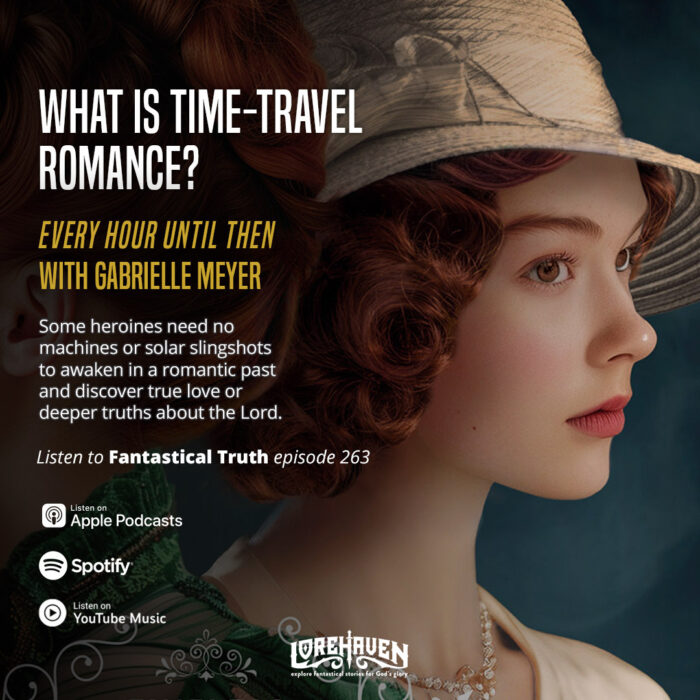


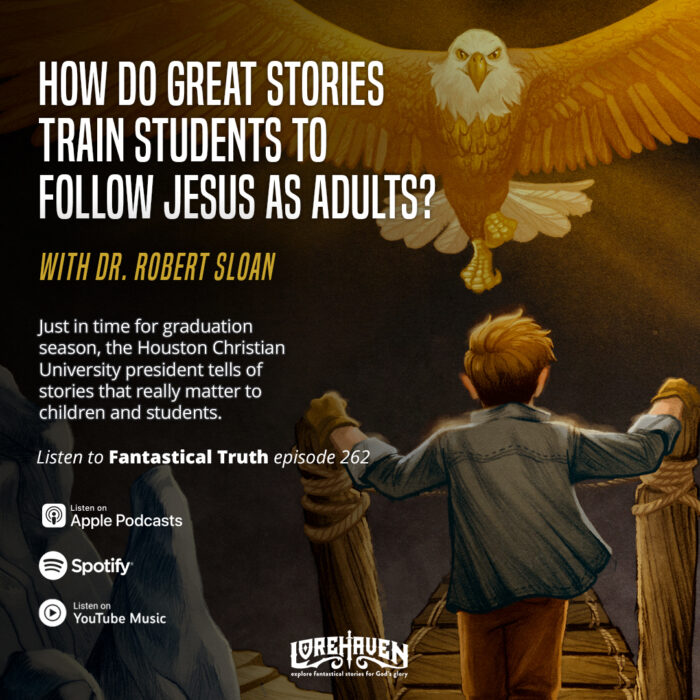













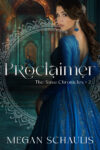
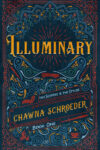

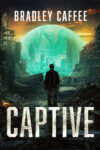




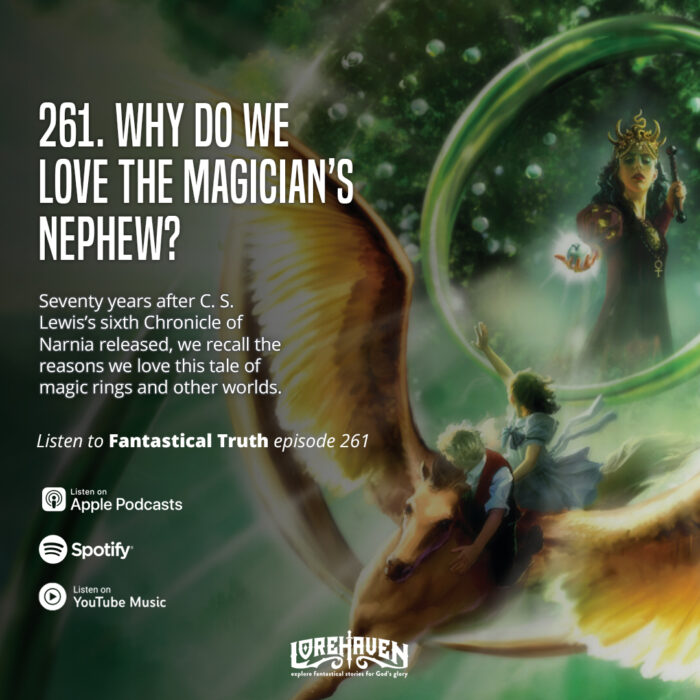
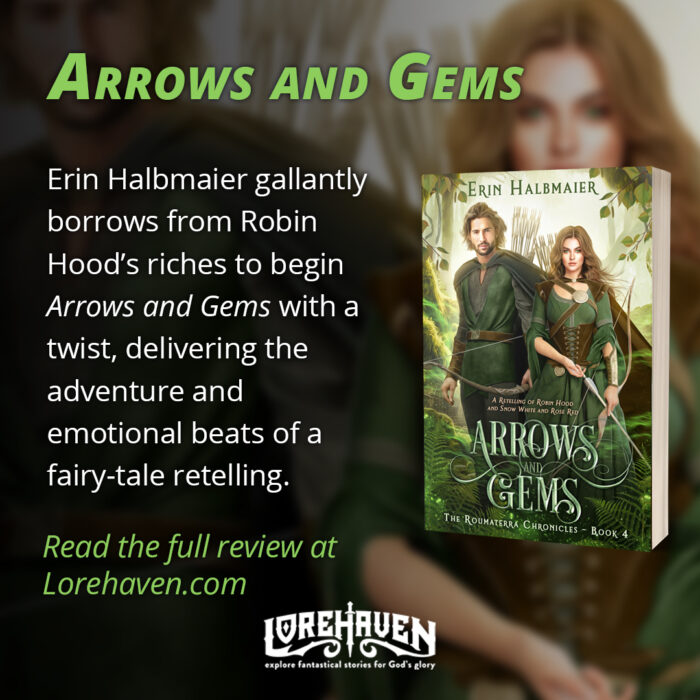
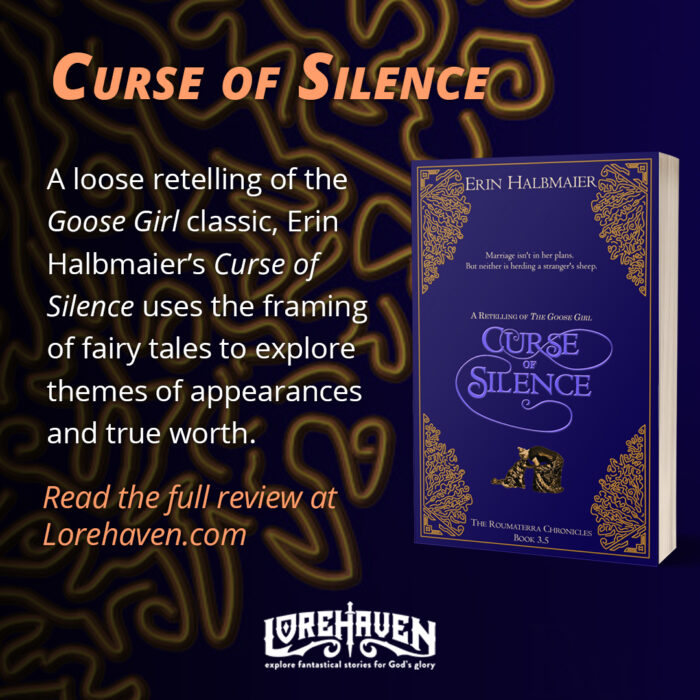
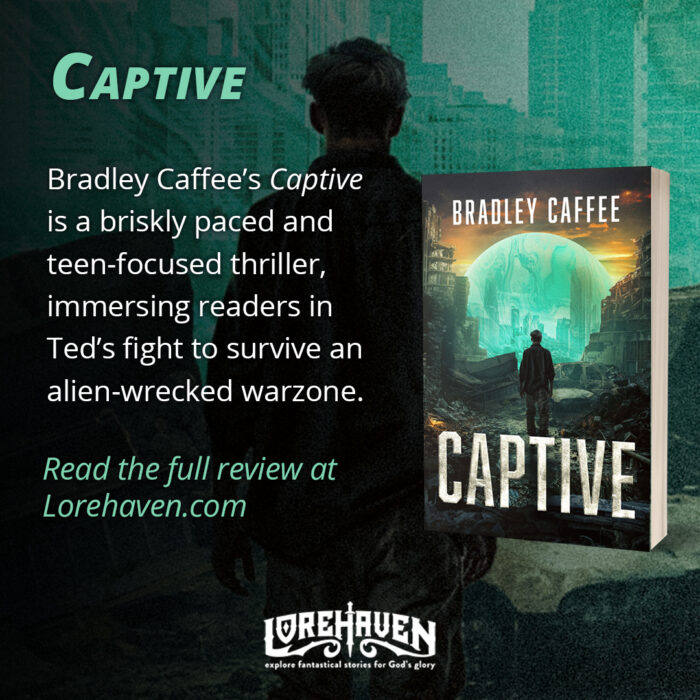


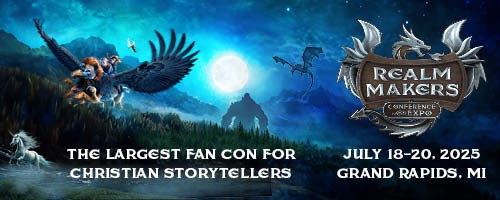
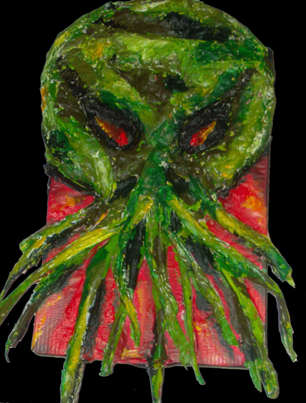



This is a terrific post! Thank you. You asked how we evaluate the fruit of a piece of horror literature. Your example of hearing what was written in Revelation is a perfect example. It led you to want to know what God said in His Word. It led you to salvation – not because you were “horrified” but because you learned who God really is. What better fruit than that?
It reminds me of the lengthy discussion we had a few weeks back about The Hunger Games. If we look past the “horror” and find the fruit, which may change us for the better, how can we say it was a bad thing?
Even Scripture says it is a dreadful thing to fall into the hands of the living God (Hebrews 10:31). If you don’t know and love God, yes, it will be dreadful. But not for those of us who are saved. Some might consider that “horror.” But if it bears good fruit, then it’s a good thing.
I agree with Pam. Terrific post! Horror for the sake of horror is worthless, but horror used to illuminate and draw us to the delight of God is worthwhile. I guess that’s how I evaluate it.
You have no idea how timely this post is for me. The manuscript I’m wrapping up—and in which I include a terrifying revelation—has had me praying earnestly for the Lord’s direction. I think in the days we are living in, a discussion of good vs evil in Christian fiction is very important. Thank you so much!
Great post 🙂
I’ve personally avoided writing specific events because of my comfort (or rather discomfort) level. The characters in my last novel definitely weren’t perfect. But try as I might to show all aspects of one man, I didn’t feel comfortable writing a detailed horrific scene. Instead, the threat was implied.
Excellent post on this. I agree that horror for the sake of horror just doesn’t go anywhere, but you’ve made some excellent points of the horrors of evil that threaten the good of characters. We have, unfortunately, in our world many examples of horrific situations. We shouldn’t ignore them, but change them.
I agree. Horror needs to have a purpose, not just ‘scare’ people. That’s boring. I think that’s why horror writers are going into gore, they are running out of ideas b/c they rely on Horror to guide the story. It gets boring after a while.
Stands up and applauds!! What he said. Thanks for that post. I don’t get folks who put on the legalistic hat and say this is how it is with this subject. AS I had said before, Jesus faced many demon possessed people and rebuked them. Saying we can’t use that in novels is saying Jesus was wrong to do what He did. Thanks for the post!! Hoot!!
The mention of the scorpions brings to mind a short story from horror writer Joseph Nassise, “On This Day of Reckoning”, which takes place on one random night of the Tribulation. Incredibly well-told, described, chilling, mature, dark, and incredibly Biblical. And yes, there’s a mention of those creepy scorpions in there.
I agree with the other posts. In fact, this might be your best post yet, Mr. Copple.
I don’t have a good answer for your question but would like to remind all us that horror can be an effect, a bit of variety in mood and tone that spices things up a bit. I think of a story or two in Bradbury’s Martian Chronicles. You can only write so many stories inducing sadness in the reader because of loss and death…
I’ve read horror novels by a variety of authors. Some of them I liked…and some of them I didn’t. I realized that the ones I enjoyed the most had some kind of edifying theme.
So now I write my own.